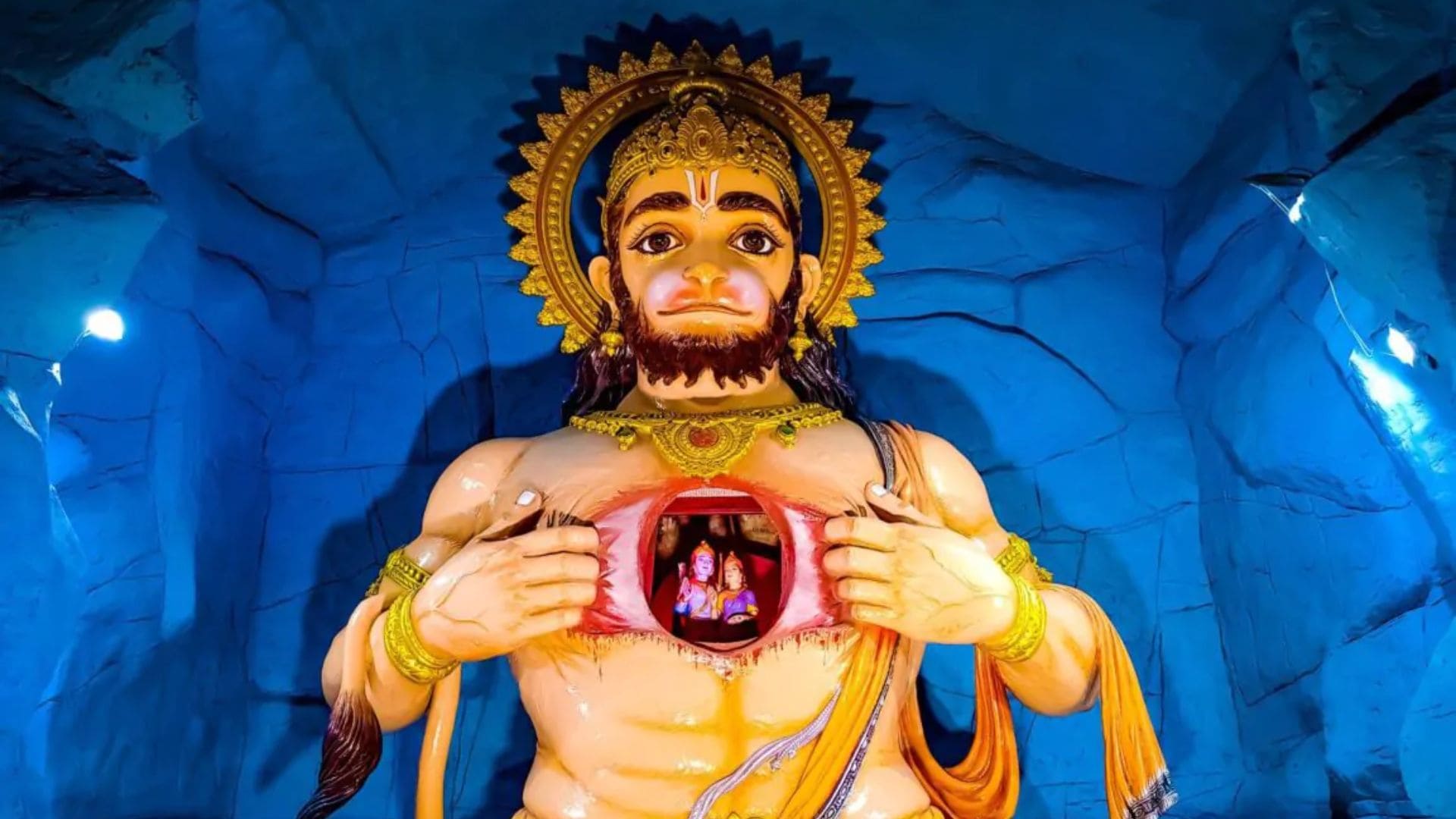
Why Lord Hanuman Did Not Fight Bali: A Lesson in Dharma, Humility, and Divine Wisdom
Lord Hanuman, though immensely powerful, did not fight Bali (Vali) due to several reasons rooted in dharma, respect, and the nature of his divine role. Here's an exploration of why Hanuman ji refrained from intervening:
- Respect for Bali's Position and Authority
Bali was the king of Kishkindha and a revered elder in the Vanara community. Hanuman, as a devoted follower of dharma, respected Bali's authority and position as the rightful king. Bali was known for his strength and valor, and Hanuman avoided any unnecessary confrontation out of respect for the established order in the Vanara kingdom. 2. Hanuman’s Role as Sugriva’s Advisor
Hanuman was a loyal devotee of Sugriva, Bali’s younger brother, and served as his minister and advisor. His primary role was to guide Sugriva, not to engage in personal battles on Sugriva’s behalf. The conflict between Sugriva and Bali was a family dispute. Hanuman likely chose to avoid escalating the situation by directly fighting Bali, allowing Sugriva to resolve the matter through external assistance. 3. Bali’s Boon and Invincibility
Bali had a boon from Lord Brahma that made him nearly invincible. He would absorb half the strength of anyone who fought him directly. Even though Hanuman had divine strength, fighting Bali directly would have been contrary to the principles of dharma since the dispute was not his own. 4. Hanuman’s Devotion to Dharma
Hanuman is an embodiment of humility and discipline. He intervened only when it was necessary and aligned with his divine mission. The primary mission of Hanuman during the Ramayana was to serve Lord Rama, and he avoided engaging in battles that did not directly contribute to Rama’s mission of defeating Ravana and restoring dharma. 5. Rama’s Role in Restoring Justice
The task of dealing with Bali was divinely ordained for Lord Rama. Rama had to intervene and defeat Bali because it was a matter of restoring justice and dharma. Hanuman recognized that the resolution of this conflict was part of Rama’s mission, and he chose not to interfere. 6. Hanuman’s Self-Control
Despite his unmatched strength, Hanuman rarely used his powers unless absolutely necessary. His restraint and focus on dharma prevented him from engaging in unnecessary violence. 7. A Lesson in Humility and Strategy
Hanuman's decision not to fight Bali teaches a profound lesson in humility, self-restraint, and the importance of adhering to one’s dharmic role. It highlights that power should be used wisely and only in alignment with divine will. Conclusion
Hanuman ji refrained from fighting Bali out of respect for dharma, Bali's authority, and the divine plan involving Lord Rama. This choice reflects Hanuman’s wisdom, humility, and unwavering devotion to serving Rama's mission. His actions demonstrate the importance of self-restraint and prioritizing the greater good over personal strength or emotions.
Similar Stories
The story of Panchmukhi Hanuman, with his five powerful faces, teaches us profound life lessons. Each face represents a unique virtue: courage, protection, wisdom, humility, and determination. Through Hanuman's selfless devotion to Lord Rama and his ability to face immense challenges, we learn the importance of balance, purity of purpose, overcoming obstacles, and leading with devotion. This inspiring story reminds us to protect what is good, stay loyal to our values, and lead by example. Di ...
Explore the fascinating mythology of Garuda and Nandi, two iconic figures in Hindu lore. Dive into their origins, divine blessings, extraordinary powers, and symbolic roles within the cosmic order. Learn why Garuda, with his unparalleled strength and cosmic feats, stands as a supreme being, while Nandi represents unwavering devotion and loyalty to Shiva.
Explore the profound significance behind Lord Ram's worship of other deities as part of His divine Leelas. Discover how this act reflects His omnipresence, humility, and the lessons He imparted for humanity as Maryada Purushottam. Dive into the mystical nature of His actions, which continue to inspire devotion and awe, reminding us of the unfathomable depths of divinity.
Astrology, Mantras, Events, Stories & More.
